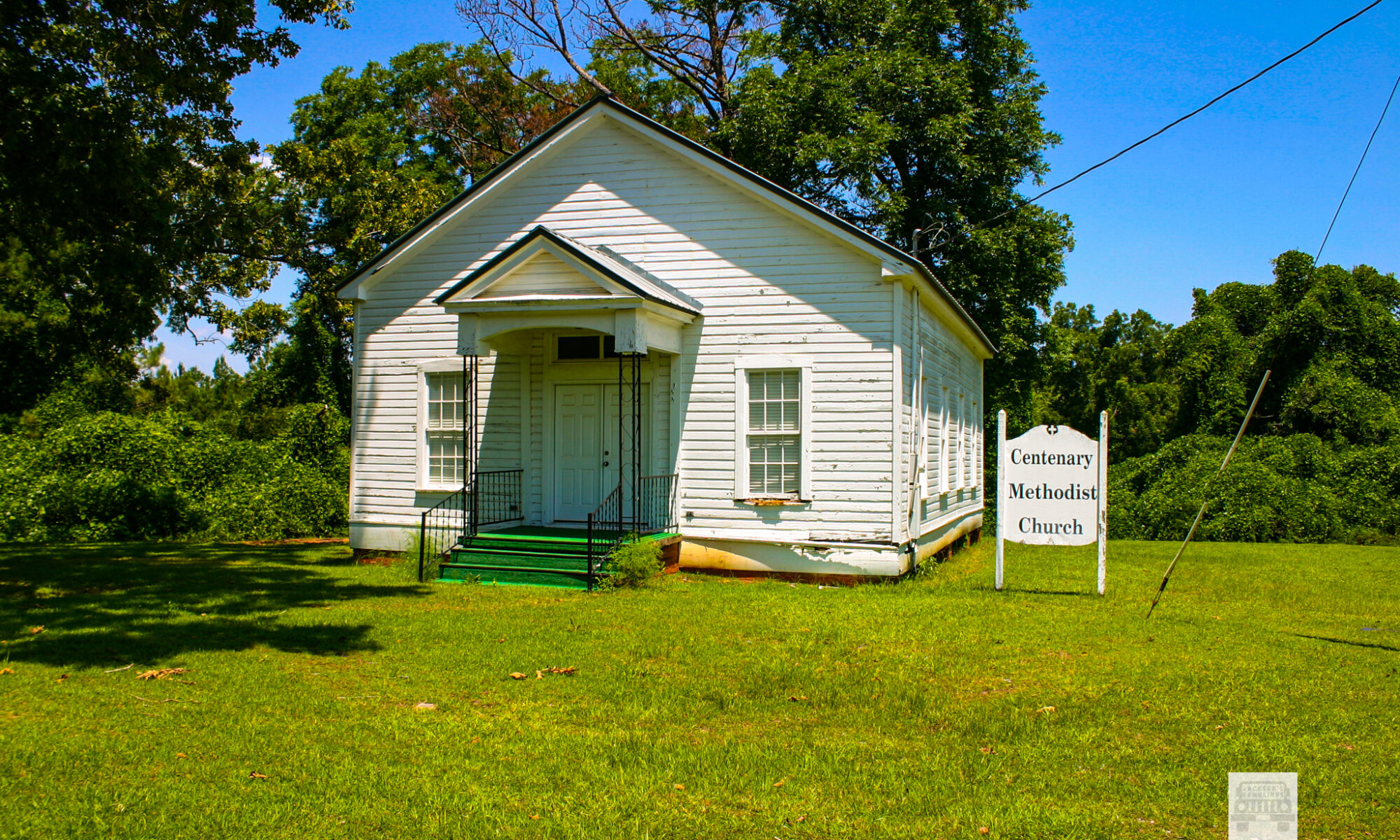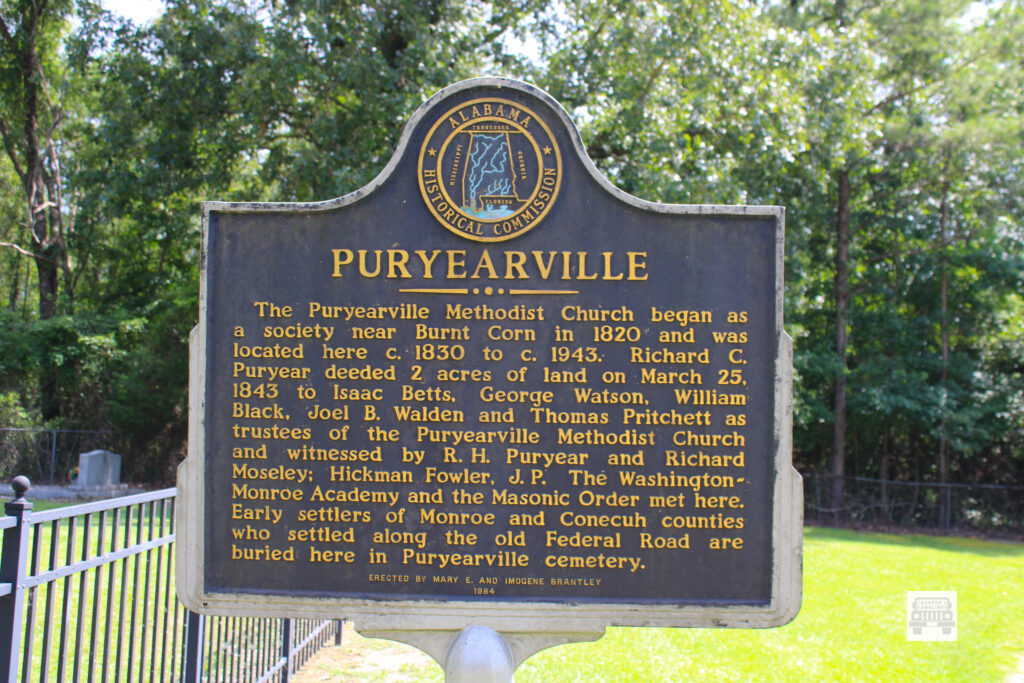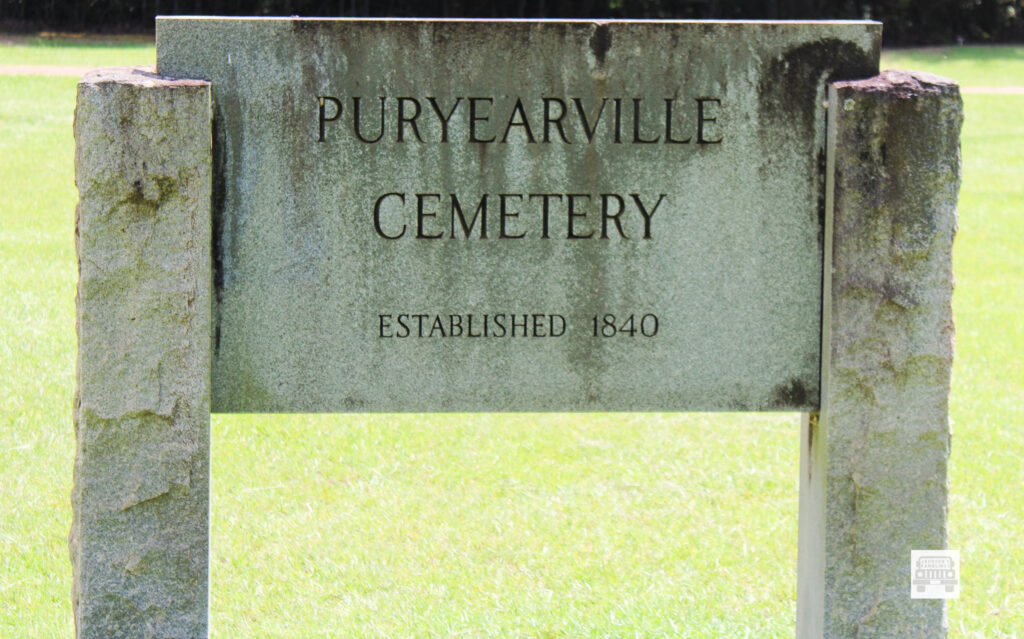Traveling through our beautiful Southlands there are so many sights to behold and so many things to learn. At every crook in the road there is history. Sadly, so much of it is fading away. While traveling through the dirt roads of Eastern Monroe County one encounters a road called Puryearville Road. Following that road there is a cemetery.
Over the years I have traveled that road numerous times. As I and other friends who research and ask questions have stated many times, we pass these things but really do not know much about them.
On a recent trip through I started to ponder on this cemetery and the history of it.
Immediately I wanted to know more. So, I started to ask questions and seek out the rest of the story. That is where it got interesting.
Little did I know that this well kept beautiful cemetery way back on a red dirt road held a mystery that I wanted to learn. As with most things in history that we search out there is always more to the story.

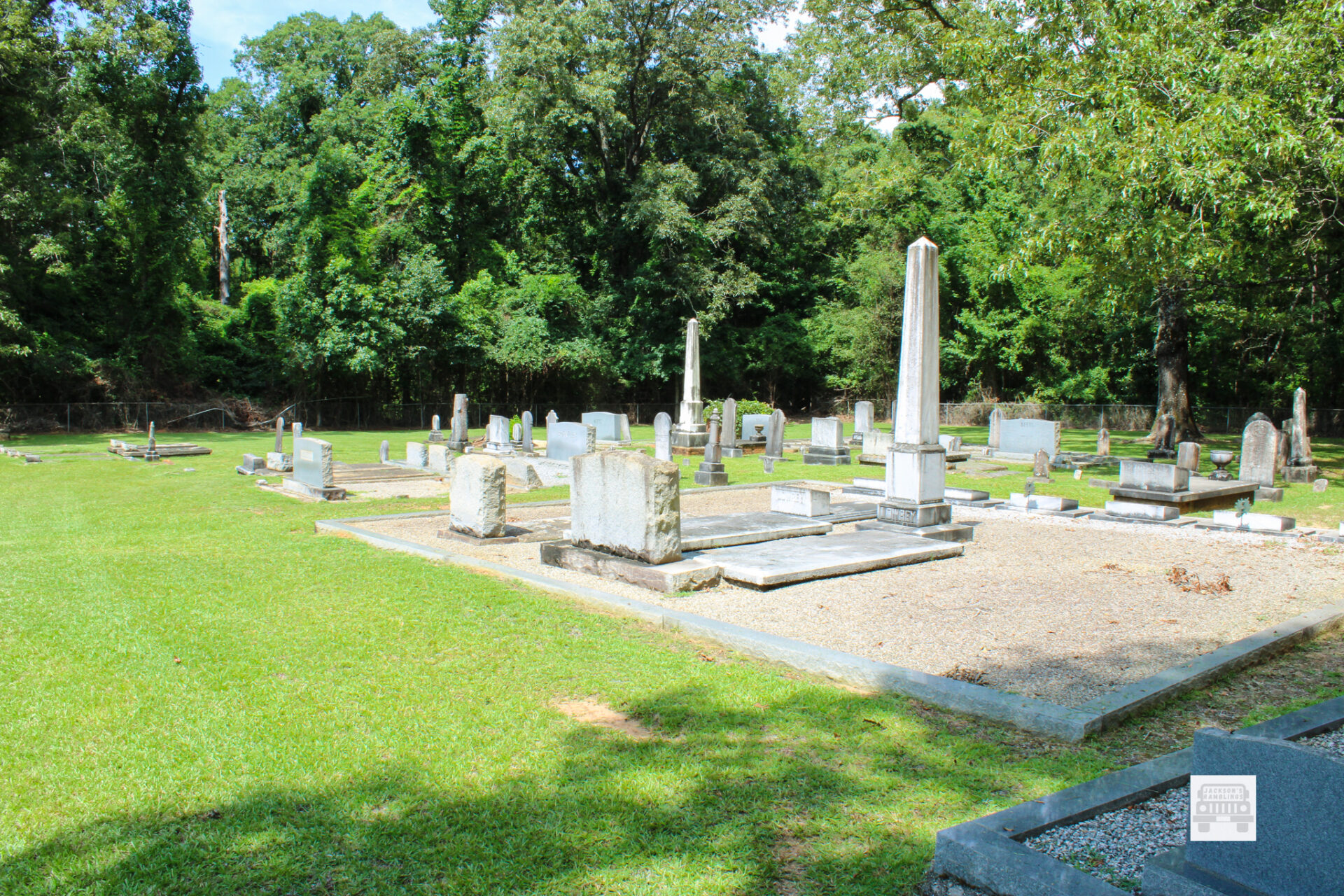
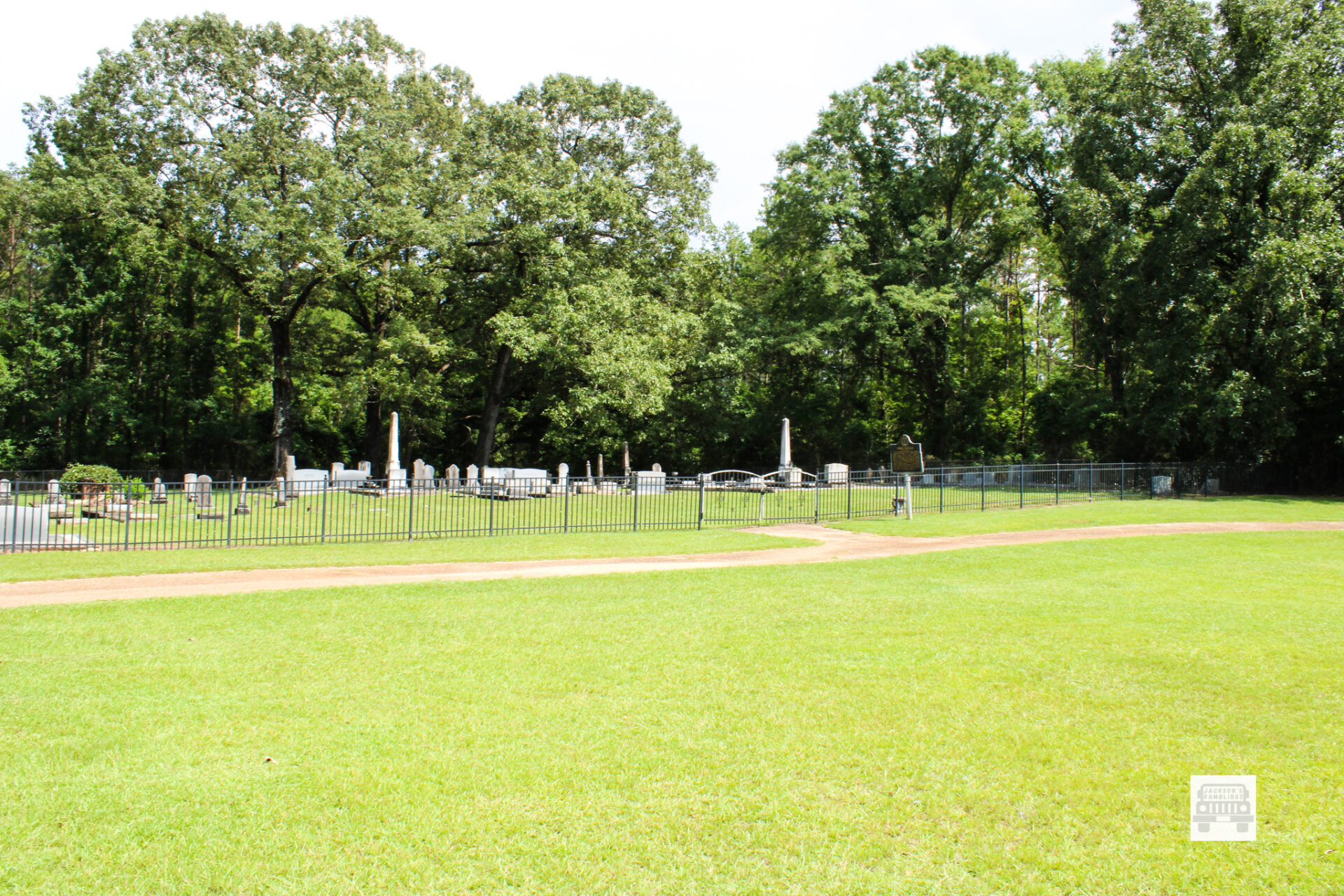
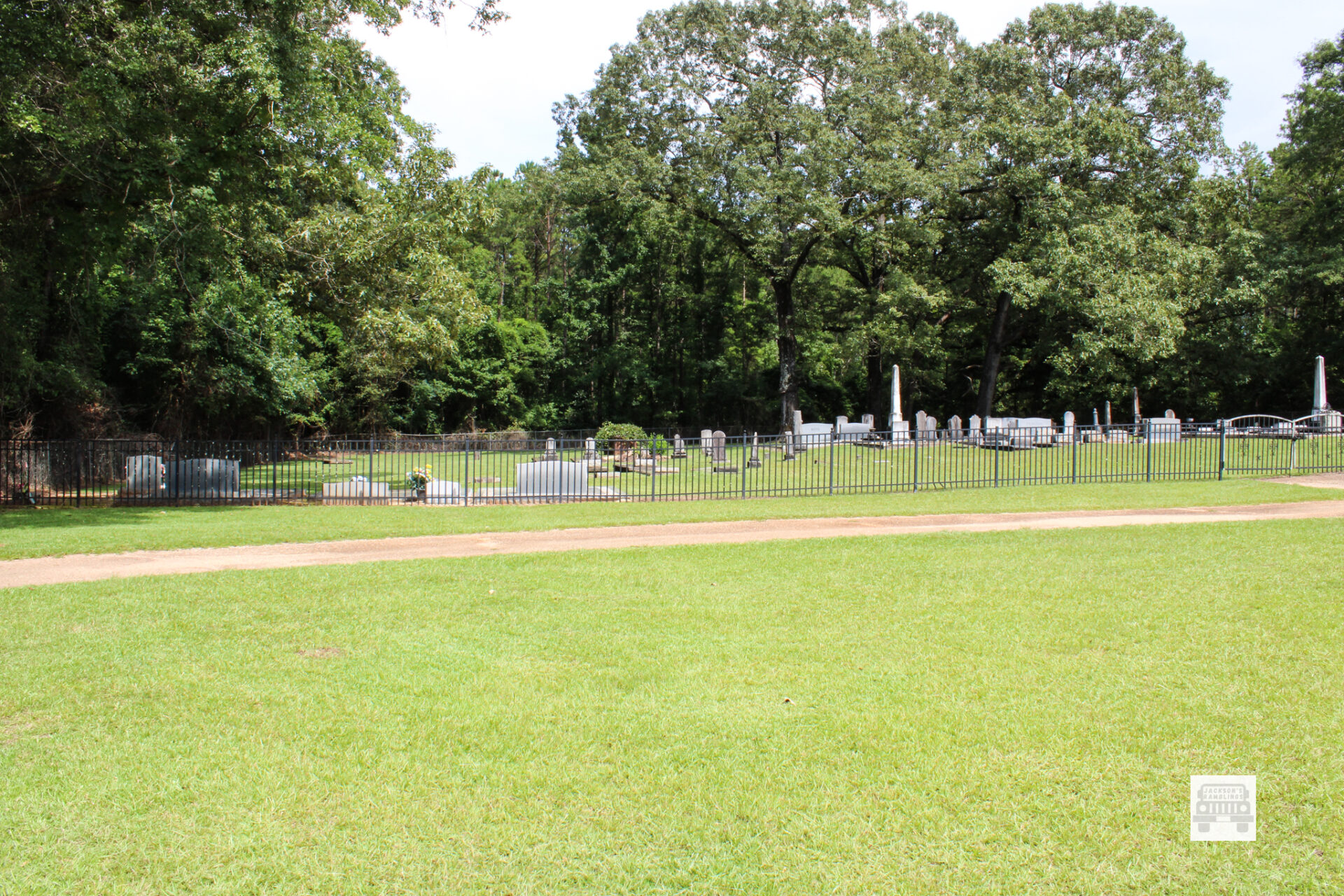
In my searches I found that there was once a Methodist Church over that way by that same name. Further research showed that it actually stood beside where the cemetery is. They had removed that church and relocated it to a spot in Conecuh County and given it a new name.
The old Puryearville Methodist Church had become the Centenary Church. As I read more and asked more I found some history on it.
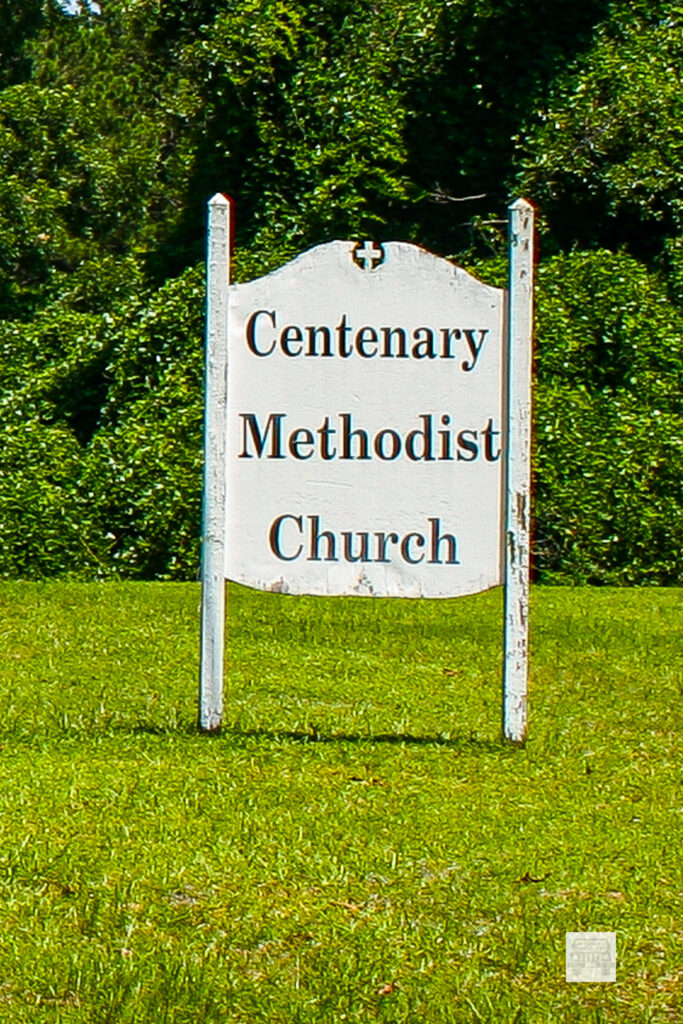
According to a document that is on the Facebook Group Burnt Corn Alabama:
Lazenby’s History of Methodism in Alabama and West Florida that is sourced by :
Reverend F.S. Moseley- — Eutaw, Alabama
Mr. John Cunningham—Evergreen, Alabama
Mrs. Eugene Riley—Monroeville, Alabama
This is excerpts of the account given in that document:
PURYEARVILLE METHODIST CHURCH MONROE COUNTY
The Purvearville Methodist Church started as a Society near Burnt Corn in 1820.
Among its earliest members were Isaac Betts, George Watson, and a Mrs. Puryear.
Another member there from 1820 until 1834 was James King, North Carolinian, licensed to preach in 1806 and moved to Alabama in 1819. It was while he was a member of Puryearville that he was ordained an elder by Bishop George in Sardis (Bellville) Church in 1822. King died at Allenton, Alabama and is buried in Oak Hill Cemetery in Wilcox County.
His wife is buried at Old Sardis.
Thomas Clinton was the first pastor appointed to the Conecuh Circuit, and he probably served this Society.
After some years this Society was moved to the community known as Puryearville and the church became known as the Puryearville Methodist Church.
Some sources say the first church was built in 1830. The property was deeded
to the trustees in 1843..
The deed to the Puryearville Church property is recorded in Monroe County Court House. This deed is dated March 25, 1843 and shows that Richard C. Puryear deeded 2 acres of land to Isaac Betts, George Watson, William Black, Joel B. Walden, and Thomas Pritchett
as trustees. R. H. Puryear and Richard R. Mosley witnessed the deed to which Hickman Fowler acted as Justice of Peace. James McCall was county clerk at the time.
It has been said that the upstairs of this, church was reserved for the use of the Washington-Monroe Academy and was also used for Masonic Meetings. This old building also had a slave gallery.
A new building replaced this old one about 1880 or 1890. The compiler first saw this building in 1912 and it seemed to have been twenty or thirty years old at that time.
The second building did not have an upstairs but was a neat small church in a beautiful location surrounded by trees.
All the trees have been cut and the church services were discontinued between 1928-30. The building was moved between 1941-43 when Reverend Sam E Hudgens was pastor of the Burnt Corn Methodist Church.
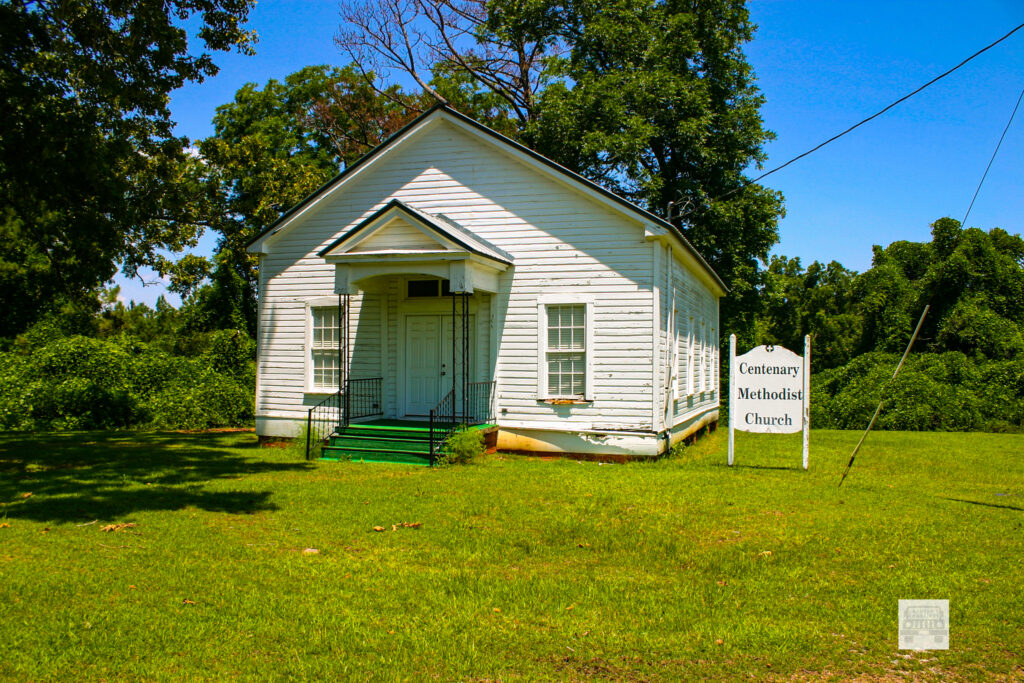
The old church was moved and rebuilt on property donated by Mr. Sam W. Salter.
It was renamed The Centenary Methodist Church and was located about six miles east of Burnt Corn near the community known as Breckenridge.
Oddly enough the Centenary Methodist Church was located diagonally across the road from the home of my Great grandparents the Dewberry’s. Finding all of this information on this church brought more meaning to me on it because of the fact that I am sure that they attended it some if not regularly. Little did I know any of this till I started to research Puryearvile Methodist Church.
Finding out all of this rich history of this cemetery and then going once again to the Centenary Church that is still standing brought a fulfillment to me and I hope it does to many others. I for one had been past the Centenary Church many times in my life. I had no clue of the connection that it has with the Puryearville Cemetery nor the community around it. This is one more reason that those of us who dig daily to learn thrive because there are so many stories that will be forever lost if they are not shared in media for the generations to come.
